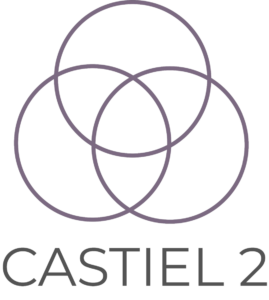PAinG-Flow aims at exerting the particle-fluid momentum coupling in multiphase turbulent flows on a code able to run on supercomputers with GPUs. Such a code will solve the incompressible Navier-Stokes equations in wall-bounded and free-shear conditions.
CoE: EXCELLERAT
CIAO performs DNS and LES with multiphysics effects (multiphase, combustion, soot, spark, …). It is a structured, arbitrary order, finite difference code with compressible and incompressible/low-Mach solvers. Moving meshes are supported and overset meshes can be used for local mesh refinement. Spatial and temporal staggering is used to increase the accuracy of stencils. The sub-filter model for the momentum equations is an eddy viscosity concept in form of the dynamic Smagorinsky model with Lagrangian averaging along fluid particle trajectories.The compressible solver uses a low-storage five-stage, explicit Runge-Kutta method for time integration. The low-Mach solver uses Crank-Nicolson time advancement along with an iterative predictor corrector scheme. The Poisson equation for the pressure is solved by the multi-grid HYPRE solver. Momentum equations are spatially discretized with central schemes of arbitrary order, while for scalar equations various different schemes (WENO, HOUC, QUICK, BQUICK, …) are available. Temperature and species equations are advanced by utilizing a Strang operator splitting. The chemistry operator uses a time-implicit backward difference method (CVODE).
CoE: CoEC
PRECISE-UNS is a finite volume based unstructured CFD solver for turbulent multi-phase and reacting flows. It is a pressure-based code, which uses the pressure correction scheme / PISO scheme to achieve pressure velocity coupling. It is applicable to both low-Mach number and fully compressible flows. Discretisation in time and space is up to second order. The linearized equations are solved using various well-known libraries such as PETSc, HYPRE and AGMG. Several turbulence models are available: k-epsilon, k-ω-SST, RSM, SAS, LES. Different combustion models are available, ranging from the classical conserved scalar (flamelet) models and global reaction mechanism, to FGM and detailed chemistry. To model the interaction of chemistry and turbulence, EBU, Presumed PDF, ATF and Eulerian stochastic field PDF closures are available. To model emissions NOx and two equations and hmom soot models are available. In order to model liquid fuel, a Lagrangian spray model is available.
CoE: CoEC
JAGUAR is a new code, still under development, that aims to reach high accuracy on unstructured grids with high computing efficiency. The numerical approach that appears most promising for these objectives is Spectral Differences with possibility of h/p refinement. The code solves fully compressible, multi-species flow equations, reacting or non-reacting.
CoE: CoEC
YALES2 aims at the solving of two-phase combustion from primary atomization to pollutant prediction on massive complex meshes. It is able to handle efficiently unstructured meshes with several billions of elements, thus enabling the Direct Numerical Simulation and Large-Eddy Simulation of laboratory and semi-industrial configurations. The recent developments are focused on the dynamic mesh adaptation of tetrahedral-based massive meshes for fronts and interfaces.
CoE: CoEC
Nek5000 is a computational fluid dynamics code that employs the spectral element method, ahigh-order weighted residual technique, for applications in a wide range of fields including fluid flow, thermal convection, conjugate heat transfer, combustion and magnetohydrodynamics. It features state-of-the-art, scalable algorithms that are fast and efficient on platforms ranging from laptops to the world’s fastest computers. Nek5000, which is actively developed and improved for more than 30 years at Argonne National Laboratory (ANL), was extended for the direct numerical simulation of low Mach number reactive flows at the Swiss Federal Institute of Technology Zurich and is been used to investigate gas-phase and catalytic combustion in a number of laboratory-scale setups of fundamental and applied interest including internal combustion engines. Nek5000 won a Gordon Bell prize for its outstanding scalability on high-performance parallel computers and the 2016 R&D 100 Award. It is part of the Center for Efficient Exascale Discretizations (CEED) co-design effort, and its user community involves hundreds of scientists and engineers in academia, laboratories and industry.
CoE: CoEC, EXCELLERAT
AVBP Combustion instabilities and emission prediction. Explosion in confined spaces.
CoE: CoEC, EXCELLERAT, RAISE
TPLS open-source program for simulation of two-phase flows. Flow modelling like oil and gas fl ows in long-distance pipelines or refi nery distillation columns, liquid cooling of micro-electronic devices, carbon capture and cleaning processes, water treatment plants, blood fl ows in arteries, and enzyme interactions.
CoE: EXCELLERAT
ASHEE Multiphase fluid dynamic model conceived for compressible mixtures composed of gaseous components and solid particle phases. All phases are treated using the Eulerian approach, identifying a solid phase as a class of particles with similar dynamical properties. The physical model is based on the equilibrium-Eulerian approach while the gas-particle momentum non-equilibrium is approximated by a prognostic equation accurate to the first order. As a result, the model reduces to a single (vector) momentum equation and one energy equation for the mixture (corrected to account for non-equilibrium terms and mixture density fluctuations) and one continuity equation for each gaseous or solid component. In addition, Lagrangian particles are injected in the domain and “two/four-way” coupled with the Eulerian field. Discretization is based on the Finite-Volume method on an unstructured grid. The numerical solution adopts a segregated semi-implicit approach.
CoE: ChEESE

The website is operated as part of the CASTIEL 2 project. This project has received funding from the European High-Performance Computing Joint Undertaking (JU) under grant agreement No 101102047. The JU receives support from the European Union‘s Digital Europe Programme and Germany, Italy, Spain, France, Belgium, Austria, Estonia.

